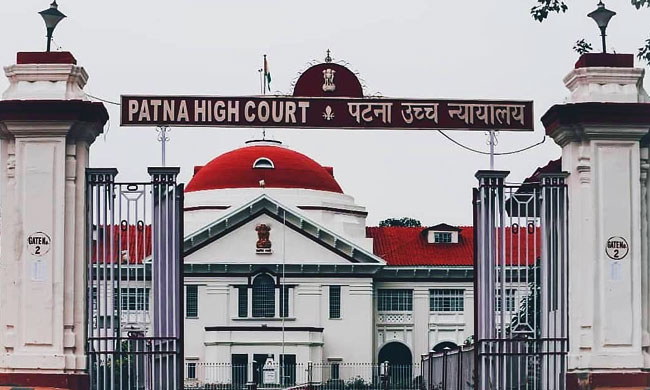A Public Interest Litigation (PIL) has been filed in the High Court of Judicature at Patna, challenging the implementation of the Bihar government’s ‘Mukhyamantri Mahila Rojgar Yojana’ (MMRY). The petition alleges that the state government and its agencies continued to disburse cash grants to beneficiaries after the Model Code of Conduct (MCC) for the 2025 Bihar Assembly Elections had already come into force.
The petitioner Masoom Raza, practicing advocate in Bihar, told the Sabrang India that the scheme as an “arbitrary sanction and timed execution” of a 2,500 Crore fund aimed at 25 lakh women beneficiaries. The petitioner further said that this action is not a “legitimate welfare measure” but a “calculated exercise in electoral inducement” designed to “destroy the ‘level playing field'” for the election.
The petition names the State of Bihar, the Election Commission of India (ECI), the Chief Electoral Officer of Bihar, the Department of Rural Development, and the Bihar Rural Livelihoods Promotion Society (JEEVIKA) as respondents.
What is the scheme and why is it being challenged?
The PIL provides a detailed timeline to support its claims. The MMRY scheme was given Cabinet approval on August 29, 2025, to provide a non-refundable grant of 10,000 rupees to one woman per family for self-employment.
The petitioner’s challenge focuses on the timing of the implementation:
September 20, 2025 – The Rural Development Department (RDD) issued a letter confirming a “high-profile online launch” for the first instalment transfer, scheduled for September 26, 2025, with the presence of the Hon’ble Prime Minister and Chief Minister.
September 29, 2025 – JEEVIKA issued an office order scheduling a “single, massive Direct Benefit Transfer (DBT) of 2500 Crore” to 25 lakh beneficiaries on October 3, 2025.
October 6, 2025 – The Election Commission of India announced the schedule for the Bihar Assembly Elections, 2025, bringing the Model Code of Conduct (MCC) into “immediate effect”. The MCC, Part VII, Clause (v), prohibits ministers and authorities from sanctioning “grants/payments out of discretionary funds” after elections are announced.
The petition alleges that despite the MCC coming into force on October 6, the state continued to execute the disbursement in a “staggered manner”. The PIL cites a Direct Benefit Transfer timeline, showing that post-MCC fund transfers were initiated on October 17, October 24, and October 31, 2025.
The petition argues this demonstrates a mala fide decision to ensure the financial grant operates as an inducement during the polling phases. It also notes that the same timeline indicates a further disbursement is scheduled for November 7, 2025, necessitating “urgent judicial intervention”.
What are the specific allegations of wrongdoing?
Beyond the timing, the petition also raises serious questions about the scheme’s implementation, alleging it was procedurally flawed and led to corruption.
The PIL argues that the scheme’s guidelines improperly delegate the core executive function of ground-level beneficiary verification to “non-governmental” and “non-statutory” functionaries known as “Community Mobilisers (CMs)”. The petition claims this delegation is arbitrary and ultra vires (an act done without legal authority), creating a fundamental flaw in the scheme’s governance.
This hurried and unchecked process, the petition alleges, has resulted in “widespread illegality and mismanagement,” including demands for bribes for application verification. The petition includes multiple news reports as evidence.
These news reports allege that irregularities and extortion demands have marred the implementation of the scheme across several districts. In Bettiah, four employees were dismissed following complaints of “illegal recovery.” In Jamui’s Chakai block, a “Jeevika Didi” (Community Mobiliser) allegedly demanded 250 rupees to process a form, while in Barhat, similar allegations surfaced of demands ranging from 100 rupees for a form to 2,000 rupees from the 10,000 rupees grant, with an audio clip of a CM allegedly seeking money reportedly going viral.
In Beldaur, women from multiple Self-Help Groups in Sukhaybasa village claimed they were denied benefits after refusing to pay a “nazarana” (offering or bribe) of 1,000 rupees per member to a Jeevika employee.
Prevent the misuse of “money of the taxpayers” and protect the “sacrosanct fundamental right of fair election
The petitioner, states that he has no “personal interest” in the case and is acting in the public interest to prevent the misuse of “money of the taxpayers” and protect the “sacrosanct fundamental right of fair election”.
The PIL prayed High Court to issue several directions:
- Stop further payments: an order directing the State of Bihar, the RDD, and JEEVIKA to “immediately cease and desist” from all further fund disbursements under the MMRY scheme until the election process is concluded.
- Enforce the MCC: a direction for the Election Commission of India (ECI) to take “prompt, decisive, and mandatory action” against the state for the “egregious breach” of the Model Code of Conduct. The PIL also notes the ECI’s alleged “failure to act” on a formal complaint filed by RJD Leader Shri Manoj Jha on October 31, 2025.
- Investigate corruption: an order to constitute an “Independent Fact-Finding Committee” to inquire into the scheme’s verification process, the delegation of authority to CMs, and the “widespread allegations of illegal demands, corruption, and bribery”.
- Demand records: a direction for the state to file a “detailed Compliance Affidavit” providing all original administrative records, including a complete list of beneficiaries sanctioned before the MCC was enforced (October 6, 2025) and a separate list of all beneficiaries who received payments after that date.
Related:
Those in India must act as per its culture: Supreme Court on PIL against religious conversion

